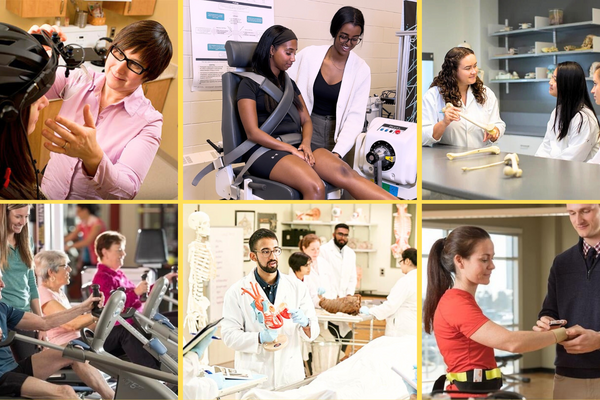
Finding balance while working from home
Co-op student Alexis Nagum shares advice for working remotely

Co-op student Alexis Nagum shares advice for working remotely
By Alexis Nagum University Relations
Alexis Joy Nagum
Executive Communications Coordinator
When it comes to work, I'm someone who thrives with plans and routines.
Approaching my final co-op term this spring, I thought I knew what to expect, especially since I had already completed three work terms at the University. But, as things changed from office life to work-from-home life, my approach on how I’d tackle this new role required me to adapt.
Like many of us during the pandemic, I found myself scrambling to find balance between work and self-care, seeking motivation, and fending off burnout.
Readjusting my outlook on what this 9-to-5 role expected of me as well as ensuring I logged off after the workday was over, helped me set realistic expectations for myself.
If you're like me and are looking for balance, here are a few methods that have helped me:
One of the first things I tried this term was maintaining a strict 9-to-5 schedule, where I wouldn’t leave my desk for hours at a time. However, with my parents working late as essential workers, I found myself caring for my grandmother in their absence and I began feeling anxious and unproductive when I wasn’t meeting my work goals.
After confiding this to my co-op employer, I was given the freedom to dictate my own hours, allowing me to restructure my tasks throughout the day. I could prioritize my family and responsibilities as they came up and continue working in a way that was productive.
Like Ryan said last week, I feel fortunate to have secured employment and to be safely working from home. (BASc '11)
Adapting to an online work setting, I've migrated my agendas and planning online as well. While I've used all-in-one notebooks for school, I needed something with different capabilities for work, so I've shifted to using all-in-one workspace apps like Notion. One of my favourite features is that it is a multiple-view database, where I can set up a calendar and change the view into a Kanban board, tracking my project goals across the week.
When I get distracted, it takes a long time for me to refocus. So, I’ve adopted the Pomodoro Technique — it’s a time management method that breaks a workday into 25-minute chunks of time, followed by small breaks. This new method has helped me meet my weekly goals because I can power through distractions — I get more things done in quick bursts. I’ve found the short, planned breaks help me relax and improve my attention span.
I never thought I'd miss my pre-COVID routines of waiting in line to order coffee or standing on a crowded bus, but here we are. Substituting these routines into daily, at-home rituals has provided more meaning to my days. Whether getting up earlier to make my parents’ coffee or singing along as I do the dishes, these small actions allow me to reconnect with myself and have added some normalcy back to my life.
Constantly using technology can sometimes make it difficult to disconnect form work. To maintain that separation, I keep my dedicated workspace out of my bedroom, set a hard deadline for when to silence my work notifications, and shut off my computer in the evenings. I also try to set an end time for the workday — and I take the time to unwind, socialize and reconnect with my family and friends.
While this is a summary of what I've been doing, other co-op students have been finding their own strategies to navigate this remote work term. Tell us what your strategies are by connecting with us on Twitter using the hashtag #UWaterlooCoop and #WorkFromHome.

Read more
Learning to pivot and adopt new skills while gaining work-experience from home

Read more
Sport and Recreation Management student Diane Choi embarks on co-op term with the Canadian Olympic Committee

Read more
From optometry and pharmacy to public health and therapeutics, Waterloo alumni are powering Canada’s health care sector
The University of Waterloo acknowledges that much of our work takes place on the traditional territory of the Neutral, Anishinaabeg, and Haudenosaunee peoples. Our main campus is situated on the Haldimand Tract, the land granted to the Six Nations that includes six miles on each side of the Grand River. Our active work toward reconciliation takes place across our campuses through research, learning, teaching, and community building, and is co-ordinated within the Office of Indigenous Relations.